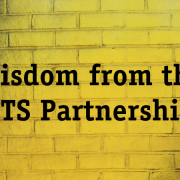5 of 9 Comfortable funding or impactful investment?
“It doesn’t matter how many people believe in it – if things don’t change at a funding and local authority level, we just can’t get a grip on it and it feels like we’re treading water.”
The person-led, relational and human nature of the PTS lends itself to trust-based investment as opposed to traditional ‘fundraising’. It requires individuals within funding bodies to invest in the principles, to come on the learning journey with us and to allow the money to follow the person, not predetermined outputs.
Packaged up projects and programmes don’t fit this approach so securing funding within a traditional funding environment can be a challenge and it can feel like a choice between compromising the approach and organisational survival.
Success was seen where commissioners, social investors and, predominantly, independent trusts believed in the principles. They were willing to do something different and entered into a new power dynamic where learning, honesty and the freedom to reflect together to bring about change was prioritised. As one funder said, ‘we are not funding your organisation, we are investing in you as individuals and buying your learning.’
Gaming for resources is still the predominant funding culture and it was difficult to set a balance between maintaining the fidelity of person-led work against the need for organisational survival. Seeking forgiveness, not permission in areas where organisations had a monopoly on delivery was not preferred, but wasn’t uncommon.
For the PTS and other person-led approaches to become mainstream, it is evident that there needs to be a fundamental shift in the funding/commissioning practice and culture to allow for trust-based giving that follows the realities of people’s lives and for learning to be a core driver of success.







